What is the reason for the sudden rise in blood pressure over the past two days, when it is usually stable?
Normally, blood pressure is around 125/80 and suddenly rises to such levels as 155/105, 2 scenarios can be thought of for such a problem-
One is a friend with no hypertension problems who had normal blood pressure and suddenly had an increase in blood pressure, even to the level of diagnosed hypertension;
The second is the case of originally controlled hypertension, where the blood pressure had been controlled in a good range through life regimen and medication, but suddenly the blood pressure is out of control and rises above the limit.
Let's briefly discuss each of these two different scenarios with you.
For a sudden rise in blood pressure when blood pressure was originally normal
This "sudden", but should be properly analyzed, if your annual physical examination, last year's blood pressure 125/80, this year's physical examination rose to 155/105 such a situation, it is not "sudden".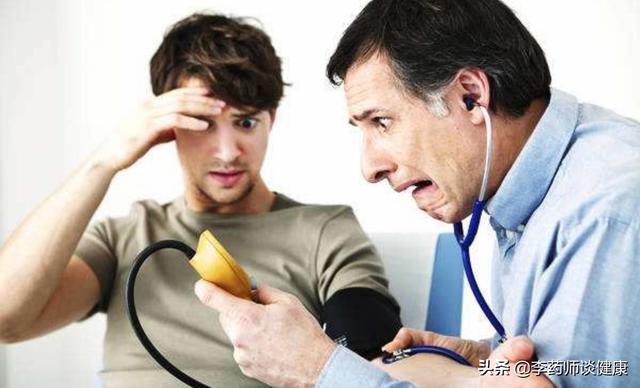
Elevated blood pressure usually has a slow rise in the process, a sudden rise in the case is relatively rare, this first year of physical examination of blood pressure is normal, the second year of physical examination of blood pressure increases, may be in this period of time without measuring blood pressure, blood pressure has a slow rise in the process, in this case, in the confirmation of the measurement of blood pressure sphygmomanometer is not a problem to ensure that the body in a state of rest, the premise of the correct measurement of blood pressure. It is time to pay attention to it. If the blood pressure is measured by a home blood pressure monitor, you may want to go to the clinic and ask a professional doctor or nurse to help you measure your blood pressure to see if it is really elevated, or if it is transiently elevated under certain circumstances, such as after strenuous physical exercise, smoking, drinking coffee, or getting angry, your blood pressure may be transiently elevated, and you do not need to be too concerned about it if the blood pressure rises transiently and then returns to normal. If the blood pressure exceeds 140/90 on two different occasions, then the diagnosis of hypertension can be confirmed.
For the already elevated blood pressure, we must pay attention to actively, in life try to do low-salt weight loss more exercise, quit smoking and limit alcohol mentality, if through strict life self-control, blood pressure still can not come down, we must pay attention to take drugs to control blood pressure, in short, found that the problem of elevated blood pressure, especially diagnosed high blood pressure, should be as early as possible to actively control.
If the normal blood pressure is about 125/80, and the blood pressure is measured frequently, but it suddenly rises within a short period of time, and the magnitude of the increase is relatively large, and there is no problem with the measuring instrument and the way of measurement, then we should consider the problem of secondary hypertension, whether it is due to the emergence of the related disease, which leads to the short-term increase in blood pressure.Primary aldosteronism, pheochromocytoma, true erythrocytosis, acquired aortic stenosisDiseases or problems such as these can lead to an increase in blood pressure, in which case it is important to troubleshoot these secondary factors that lead to an increase in blood pressure.
In hypertensive patients with otherwise well-controlled blood pressure, blood pressureabruptAnalysis of some possible causes of elevation
It is very important for people with high blood pressure to control their blood pressure levels to reduce the health risks that may be associated with long-term hypertension. If hypertensive patients control their blood pressure level, which is normally around 125/80, and control it to this level can greatly reduce the risk of cardiovascular disease and stroke caused by high blood pressure.It can be good for hypertension control.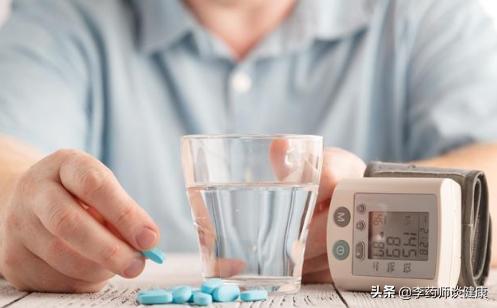
High blood pressure was controlled very well, daily life also often monitor blood pressure said, but recently but suddenly elevated, to the level of 155/105 or so, may wish to first from the blood pressure control of some factors to find the reasons, the last few days of antihypertensive drugs have not been regularly taking? Diet has not done low-salt diet, healthy and regular diet? Have you gained weight recently? Have you stayed up late or been overworked in the past two days? Have you quit smoking recently? All these aspects are possible reasons that may lead to the control of high blood pressure becoming unstable.
In addition to the impact of these lifestyles, mood regulation is also a very important aspect, if the blood pressure appears to be elevated, you may also want to ask yourself, recently there is no let you angry, anxious, nervous, not yet resolved the troublesome things? Do not underestimate the psychological impact on blood pressure, psychological changes, will affect our plant nerves, and plant nerve disorders, will lead to unstable blood pressure control, which is very worthy of our attention.
For some friends with more serious atherosclerosis, changes in the weather, cold and warm, may also affect the control of blood pressure, it is now the cold days of the third nine days, the impact of cold weather, but also make the blood pressure more difficult to control, for such a situation, on the one hand, pay attention to warmth, on the other hand, if the blood pressure is really difficult to control, and to exclude other secondary effects of the premise, can be adjusted by adjusting the medication regimen, the combination of medication On the other hand, if the blood pressure is really difficult to control and other secondary effects are excluded, the control of blood pressure can be strengthened by adjusting the medication regimen and combining medications.
Thanks for the invitation, normal blood pressure is 140 90 below, your blood pressure basically belongs to the high. If you are a hypertensive patient and your blood pressure reaches this level, you may not have taken your medication in a timely manner, or you may be suffering from mood swings, sleep deprivation, overwork, and emotional instability, all of which can affect your blood pressure to fluctuate. However, if you have no history of hypertension and suddenly experience an increase in blood pressure, it may be related to your primary hypertension, and you need to monitor the changes in your blood pressure. It is best to check your blood pressure at different intervals within three days, and if your blood pressure reaches 140/90 or more, you should consider hypertension in this case. If necessary, you can check the 24-hour ambulatory blood pressure, observe the fluctuation of blood pressure blood pressure is slightly high, may not need special treatment, need to improve through diet and exercise lifestyle, if these still do not meet the standard, need to consider drug treatment.
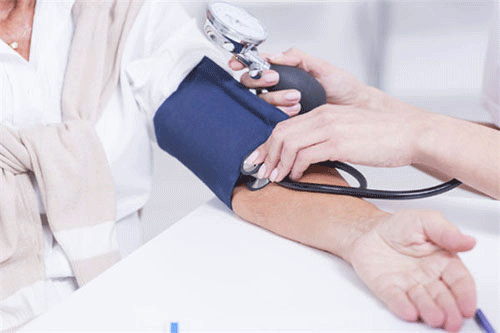
1. If the blood pressure is not controlled by drugs, you need to find out whether there is the possibility of secondary hypertension, such as secondary to some kind of suprarenal hemangioma, a cell tumor, acromegaly, these secondary hypertension is not well controlled by drugs, so you need to find out the specific cause of the disease. After the diagnosis of secondary hypertension is confirmed, surgical treatment may be needed. Continued surgical treatment may help the blood pressure to reach the symptomatic level, and medication may not be needed.
2. There is also a part of the elderly may be generally older than 65 years old, the relationship between atherosclerosis will appear pressure difference in height, in this case a little bit of blood pressure control or the amount of medication is not up to standard, the condition of the unstable situation will induce acute cerebral vascular rupture, the emergence of acute, cerebral thrombosis or cerebral hemorrhage, there will be a disability, hemiplegia, the adverse consequences of the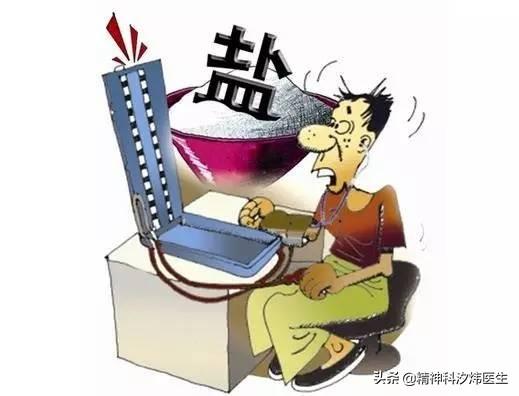
3. If long-term blood pressure instability blood pressure fluctuations on the cardiovascular and cerebrovascular is a negative damage, but also the aggravation of cardiovascular and cerebrovascular disease cardiovascular and cerebrovascular accidents, severe may be acute cerebral thrombosis cerebral ischemia, so that must be timely control of blood pressure to a certain extent, to improve the healing of disease
4. Hypertension has a certain family heredity, if the family has a genetic history of hypertension, so that must be in advance of the prevention of timely monitoring. Regular monitoring of blood pressure changes, from the dietary lifestyle must be twice as careful as normal people, pay more attention to appropriate exercise, increase blood flow.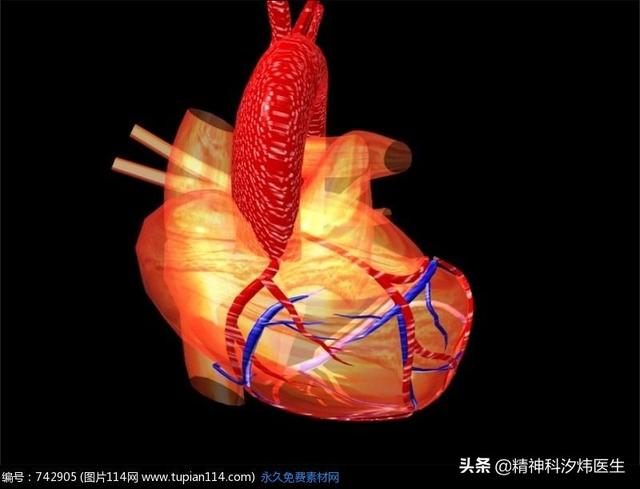
Blood pressure treatment in addition to control the condition of drug therapy, maintain a good mood, maintain a good state of mind, appropriate exercise, this will have a recovery of the disease, the diet also needs to be adjusted low-salt, low-fat diet, do not eat spicy, stimulating greasy, animal offal and other foods to green leafy vegetables, you can eat some protein-rich fish, meat and eggs, once you have high blood pressure disease need long-term medication, and If you need to regularly test the fundus cardiac ultrasound, electrocardiogram and changes in liver and kidney function, to prevent the progression of these complications, to improve the future of the disease, to prevent the serious impact on people's quality of life of the disability rate of the disease rate, so that from the first level of prevention as the main, high blood pressure is a long and protracted war, need to adhere to the standardized drug treatment for a long period of time, regular medication, and then do not need to be intermittent, discontinued. Oral medications need to be adjusted by a professional doctor according to the specific condition of the dosage and the selectivity of the drug is very important.
Blood pressure is one of the basic indicators of human health. Abnormal blood pressure signals that health is being affected, and patients need to be vigilant. In recent years, with the change of life style, the incidence of hypertension is increasing and gradually tends to be younger. Therefore, if you find that your blood pressure is elevated, you should consult a doctor in a timely manner.
Normally my blood pressure is around 125/80, but in the past two days it has suddenly been 155/105.
Under normal circumstances, the body's blood pressure will be maintained at the systolic blood pressure of 90-140mmHg, diastolic blood pressure of 60-90mmHg, the ideal blood pressure standard is about 120/80mmHg, elevated blood pressure is predicted to be high blood pressure or due to some special circumstances, first of all, we need to find out the cause, the cause of treatment.

1. Causes of sudden increase in blood pressure in normal population:As the title suggests, if there is no previous history of hypertension and the blood pressure has always been normal, and the blood pressure rises to 155/105 mmHg in one measurement, it cannot be ruled out that it is due to the interference of testing factors. For example, if the sphygmomanometer has not been calibrated for a long time and there is a measurement error, or if you do not have enough rest before measuring blood pressure, or if you exercise strenuously before measurement, have emotional fluctuations, consume beverages such as strong tea or strong coffee, or have incorrect posture for measurement, etc., the measurement result will be affected. The correct approach should be after the discovery of blood pressure abnormality, again after several days of continuous measurement, if the blood pressure has been higher than normal, it may be a manifestation of hypertension, and you should consult a doctor in a timely manner. Or go directly to the hospital to see a professional doctor for measurement. If abnormal blood pressure is found, timely intervention and treatment are needed after eliminating interfering factors.
It is important to note that blood pressure is not static, there is a certain circadian rhythm and seasonality, for example, blood pressure will decrease in summer and increase in winter; in a day, blood pressure will show the phenomenon of "two peaks and one valley", blood pressure rises to the first peak in the morning between 6:00-8:00 a.m., and then decreases, then rises again to the second peak between 4:00-6:00 p.m., and is at its lowest point at night. It rises to the first peak in the morning between 6 and 8 a.m. and then drops, then rises again to the second peak in the afternoon between 4 and 6 p.m., and is at its lowest point at night. Therefore, if the measurement time is different, the blood pressure value will be different.
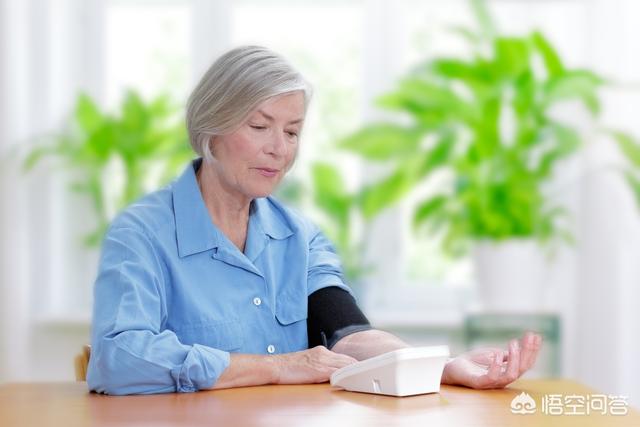
2. Triggers of sudden rise in blood pressure in hypertensive patients:For hypertensive patients, fluctuations in blood pressure are more harmful. If a hypertensive patient's blood pressure has been well controlled in the past, without much change, and suddenly finds that it fluctuates abnormally above normal, it is recommended that he or she seek medical attention.
On the one hand, the loss of control of blood pressure may be a manifestation of the aggravation of the condition hypertension, or the patient has already appeared target organ damage, at this time, the previous medication may no longer be able to help the patient to control the blood pressure well, the patient should consult a doctor in a timely manner, under the guidance of the doctor to adjust the medication regimen, or choose to combine the medication, in order to stabilize the blood pressure. If serious complications have occurred, appropriate treatment is needed. On the other hand, if the blood pressure of hypertensive patients suddenly out of control, also need to look for reasons from themselves, whether the medication is not timely, whether the recent lifestyle inappropriate, etc., because the omission of antihypertensive medication or high salt diet, alcohol, mood swings and other adverse factors are the cause of blood pressure out of control, and if there is a need to correct in a timely manner.
In the morning outpatient clinic came a hypertensive lady, hypertension for 5 years, blood pressure is usually controlled quite well, basically around 120/80, but I do not know why the blood pressure has recently risen to around 160/100.
The first question the older woman asked was whether this antihypertensive drug was resistant, as it had been taken for several years.
I told the lady that there is no such thing as resistance to antihypertensive drugs, and that taking one antihypertensive drug does not cause drug resistance and cause poor blood pressure control.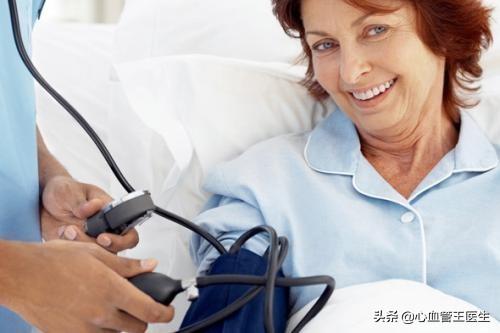
In fact, in real life, a lot of people experience this problem of poorly controlled blood pressure.
First, why I have been encouraging people to monitor blood pressure, but also more measurements of blood pressure, because our blood pressure itself is fluctuating, and not taking antihypertensive drugs, blood pressure is stable, then after a lifetime of blood pressure will be stable. And most of the high blood pressure does not have any feeling, and can not rely on the feeling to judge the blood pressure, can only rely on the measurement of blood pressure to know their blood pressure control is good or not.
Second, there are many causes of elevated blood pressure: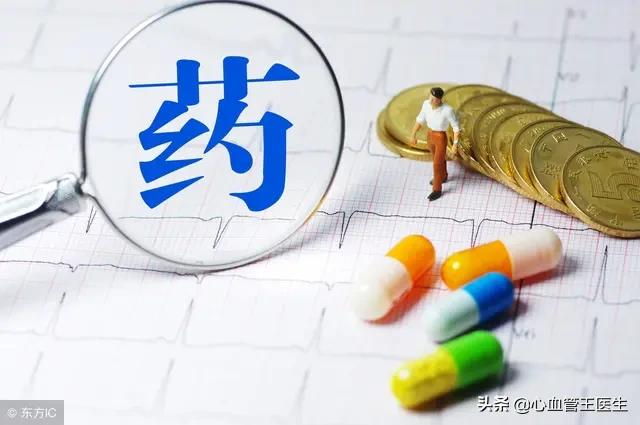
1, blood pressure itself is not static, simple to understand, most of us did not have high blood pressure when we were children, with increasing age, with unhealthy habits and genetic factors, etc., many people will have high blood pressure; even if we control high blood pressure through the blood pressure can be returned to normal, but with the passage of time, the blood pressure itself may continue to rise. This is when the most effective way to detect it in time and adjust the treatment as soon as possible to effectively control the blood pressure.
2, winter itself will increase blood pressure, for many hypertensive people have a law, that is, low blood pressure in summer, high blood pressure in winter; the reason is that the summer temperature is high, the winter temperature is low, commonly known as the cause of vascular thermal expansion and contraction, vascular contraction after blood pressure will increase. Therefore, we should exclude seasonal blood pressure changes.
3, unhealthy life, after having high blood pressure, our most basic way to control blood pressure is to live a healthy life, such as quitting smoking and drinking, adhering to exercise, low-salt diet, weight control, reduce late night; this is the basis for controlling blood pressure; on this basis if the blood pressure does not return to normal, this time you need to cooperate with antihypertensive drugs. When we gradually neglect healthy living, our blood pressure will rise again, so healthy living should be accompanied by our whole life.
4、Combination of other diseases, when we are not feeling well, any disease, our blood pressure may fluctuate, such as the simplest cold, fever, pain and so on can cause blood pressure fluctuations. So it is also necessary to remove these causes.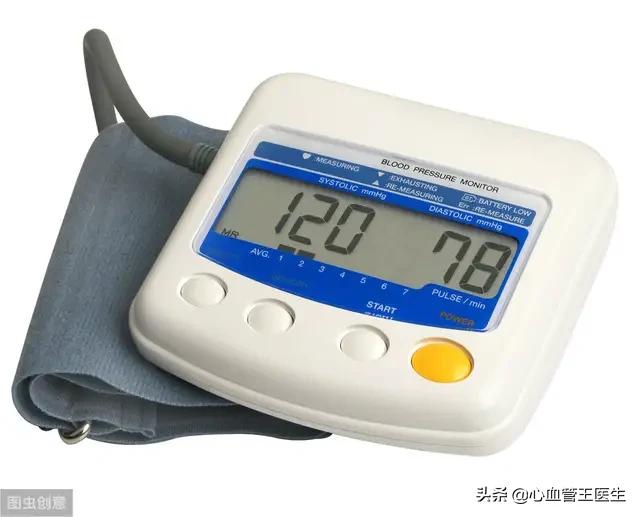
Finally, after a comprehensive analysis, the elevated blood pressure of the damsel is a combination of causes, on the one hand, the lower temperature, and on the other hand, the lower activity of the damsel in the winter, coupled with the increase in age, all contribute to the elevation of blood pressure.
Solution: Add a little bit of other antihypertensive medication and combine them for the sole purpose that the blood pressure must be up to standard!
[Copyright Dr. Cardiovascular Wang]
Normally in the normal range of blood pressure, suddenly appeared to rise, what is the reason? The human body's blood pressure is in a constant process of dynamic change, susceptible to a variety of factors, both physiological and pathological elevation, today we will learn about it.
Elevated blood pressure levels are closely related to irrational diet (e.g., foods high in sodium and salt, overeating, etc.), smoking, drinking, lack of exercise, overweight or obesity, irregular lifestyle, and high mood swings. If a patient already has high blood pressure, it can also cause fluctuations in blood pressure if he or she does not take regular medication.
The diagnosis of hypertension is based on a systolic blood pressure ≥140mmHg and/or diastolic blood pressure ≥90mmHg measured three times on non-same day without our taking antihypertensive drugs. Therefore, if there is a sudden increase in blood pressure, it is important to be alert to the presence or absence of bad lifestyle habits and to discharge the presence or absence of hypertension.
If you have any questions, please feel free to leave a comment at the end of the article to discuss. Follow the author for continuous daily updates on health knowledge.
Blood pressure is an indicator that middle-aged and elderly people need to monitor on a regular basis. Monitoring blood pressure in healthy people can lead to early detection of hypertension, and through reasonable antihypertensive treatment, damage to target organs such as cardiovascular, cerebrovascular, and renal organs can be mitigated; monitoring blood pressure in hypertensive people can help to understand the current efficacy of antihypertensive therapy, and whether or not adjustment of the treatment program is needed in order to control blood pressure up to the standard for a long period of time to slow down the emergence of chronic complications. What is the reason for the sudden increase of blood pressure from 125/80mmHg to 155/105mmHg? Next, Medical Senlution will analyze it for you.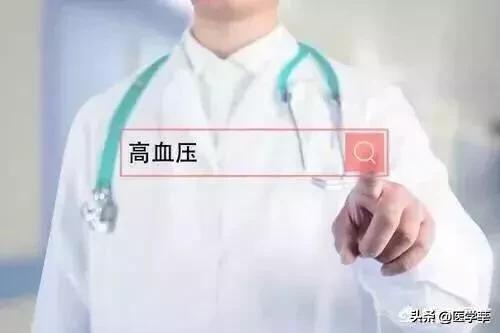
There are more causes of elevated blood pressure. Patients with a family history of hypertension have a higher risk of abnormal blood pressure than the general population; people with unhealthy lifestyles, such as alcoholism, late nights, high-salt diets, lack of exercise, obesity, and stress, also have a higher chance of developing high blood pressure. Healthy people's blood pressure suddenly rises, it is recommended that under the guidance of specialists, after excluding exercise, diet, medication and other interfering factors, non-same day measurement of blood pressure at least twice, if the blood pressure is still higher than 140/90mmHg, hypertension should be considered, but 155/105mmHg blood pressure rise is not significant, belongs to the 2nd level of hypertension, due to the short course of the disease, found in a timely manner, and therefore the target organs of the cardio-cerebral vasculature and kidneys are generally less severe. The damage to target organs such as cardiovascular, cerebrovascular, and renal organs is generally mild, and the treatment can also be given as lifestyle intervention therapy first, insisting on a few weeks, and if the blood pressure can be controlled below 140/90mmHg, the current treatment can be continued, and if the blood pressure is still higher than the target range after a few weeks, in order to alleviate the damage to the target organs, the drug lowering of blood pressure should be initiated.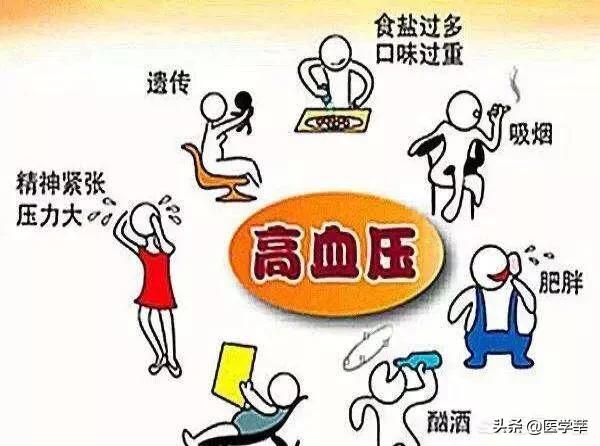
If a hypertensive patient's blood pressure is suddenly higher than the target range, after eliminating interfering factors and measurement errors, the first thing to consider is whether he/she is taking medication regularly. Some middle-aged and elderly people have poor adherence to treatment, and there may be cases of missing medication, and commonly used long-acting antihypertensive drugs, the duration of lowering blood pressure is generally not more than 24 hours, so it is necessary to take medication every 24 hours in order to smooth control of blood pressure and reduce fluctuations in blood pressure, and if they miss the medication, then there may be an elevation in blood pressure; if there is no missing of medication, and the blood pressure fluctuates repeatedly and it is difficult to reach the target, it should also be considered whether there is a change in lifestyle that may increase the rate of reaching the target blood pressure. If there is no medication omission, but the blood pressure fluctuates repeatedly and it is difficult to control the standard, we should also consider whether there is an unchanged lifestyle, which can increase the rate of blood pressure standardization. In addition, attention should also be paid to the exclusion of secondary hypertension, secondary hypertension can find a clear cause such as chronic nephritis, renal artery stenosis, pheochromocytoma, primary aldosteronism, aortic stenosis, etc., and need to be arranged by specialists to rule out auxiliary examinations, secondary hypertension is difficult to control blood pressure because the cause of the disease has not been eliminated, and part of secondary hypertension can be eliminated through surgical treatment.
In summary, a sudden increase in blood pressure from 125/80 mmHg to 155/105 mmHg, in patients with previously normal blood pressure should be considered as a possible cause of hypertension if the blood pressure is repeatedly higher than 140/90 mmHg. Hypertensive patients with stable blood pressure control in the past, blood pressure fluctuations should be considered whether there is a leakage of medication, whether there is a lifestyle that elevates blood pressure, whether there is secondary hypertension and other reasons.
Thank you all for reading!
Please correct me if I'm wrong! Feel free to ask and share in the comments section!
Note: The content of the text is intended to be used as health science only, and is not intended as medical advice or opinion, and does not qualify as medical guidance.
If your blood pressure has always been around 125/80, and then suddenly becomes 155/105 in the past two days, you should first rule out whether the blood pressure measurements in the past two days were accurate, whether they were taken by the same sphygmomanometer, and whether they were taken in a calm state, and if the blood pressure measurements were accurate, you need to pay attention to it.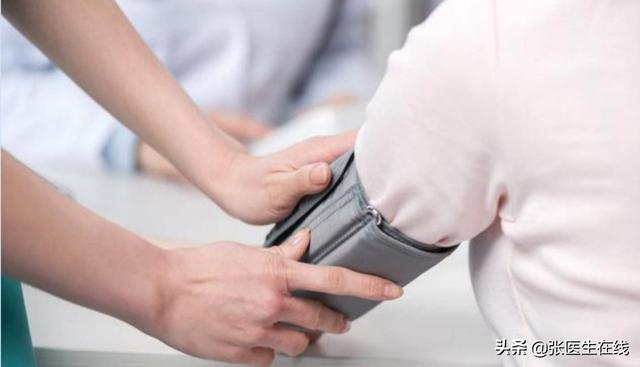
We say that blood pressure higher than 140/90 is the diagnostic criterion of hypertension, one or two times blood pressure reaches 155/105, is not enough to diagnose hypertension, you need to continue to go to the clinic to measure the value of the blood pressure at least 3 times in a calm state on a non-same day, if it is still higher than 140/90, then you need to pay attention to it!
First of all, it is important to rule out the possibility of secondary hypertension, which accounts for less than 5% of the total number of people with hypertension, but is still very high in absolute numbers! Primary aldosteronism, pheochromocytoma, and renal vascular hypertension are common conditions that can cause secondary hypertension.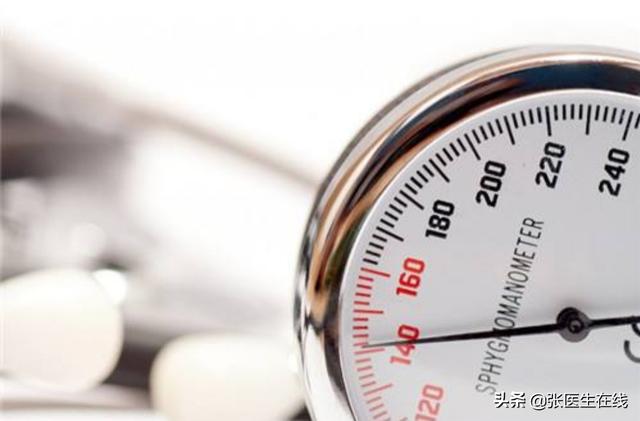
Beyond that, it's time to consider primary hypertension! Mental stress, poor sleep, etc., can affect blood pressure, but a single factor will not lead to a significant increase in blood pressure. As a doctor in ICU, I often work night shifts, usually staying up all night, and I have to resuscitate patients, but my blood pressure is still normal in the morning.
Whether it is primary hypertension or not. We all need to do a low-salt and low-fat diet, quit smoking, reduce alcohol, eat more vegetables and fruits, control weight, and increase exercise. If your blood pressure is persistently higher than 155/105, you must take oral antihypertensive drugs in time!
Dr. Zhang Online - Welcome to your attention!
As living human beings, blood pressure is not static, and will change with time, seasonal changes, changes in the body's internal environment and other multi-factorial changes. Therefore, if a person's blood pressure, which is usually around 125/80, suddenly rises to a level like 155/105, it is not a big problem if it is occasional.
But, still, it's important to be aware of the
First of all, find out if there is any reason for your blood pressure to rise: 1. How well you have slept recently, whether you have stayed up all night or are overly tired; 2. Whether you are mentally stressed; 3. Whether you have consumed too much oil, salt and fat; 4. Whether the weather temperature is dropping; 5. Whether you have measured your blood pressure accurately; 6. Whether your blood pressure has dropped. etc.
After excluding the above factors
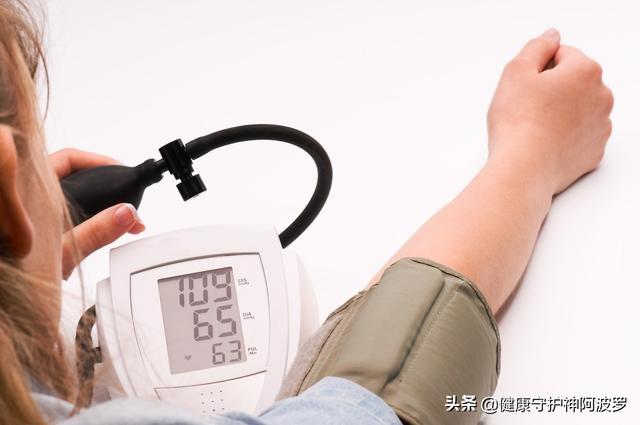
1. If you did not have high blood pressure before, but now suddenly have high blood pressure, you need to suspect whether you have developed high blood pressure, you can go to the hospital for further monitoring of ambulatory blood pressure to clarify the diagnosis.
- If you already have high blood pressure and are already taking medication, you need to know whether you are taking the medication regularly or not, or whether the effect of the medication is decreasing and other factors, and then consult the cardiology department of the hospital if necessary to adjust the medication.
Blood pressure generally refers to arterial blood pressure, which is the side pressure of our blood flow on the unit blood vessel wall. The human body's blood pressure is affected by a variety of factors, in the process of constant dynamic change, for the previous blood pressure is normal, the recent sudden increase in blood pressure, the main common causes are: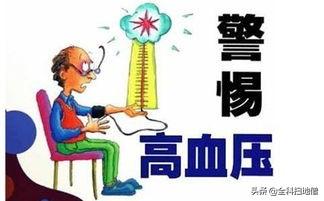
1, inaccurate measurement: ① exercise before the measurement, but not quiet rest; ② before the measurement of strong tea, strong coffee or alcohol; ③ not empty urine and feces; ④ measurement instrument error; ⑤ measurement process of talking, activities, etc..
2, dietary irrationality: such as eating a high sodium salt diet, sodium salt intake is closely related to the occurrence of hypertension, so we should pay attention to low-salt diet, daily sodium salt intake should be less than 6g; or diet too spicy stimulation.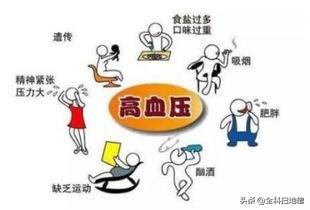
3, smoking and drinking: smoking will increase sympathetic excitation, resulting in increased heart rate, and at the same time will constrict blood vessels, resulting in increased blood pressure; and drinking (especially excessive alcohol) will also cause blood pressure fluctuations.
4. Lack of exercise: Exercise can help improve the body's metabolism, reduce anxiety, improve cardiopulmonary function, help reduce blood pressure levels and assist in the treatment of hypertension.
5, overweight or obesity: overweight, obesity (including abdominal obesity) will also cause elevated blood pressure.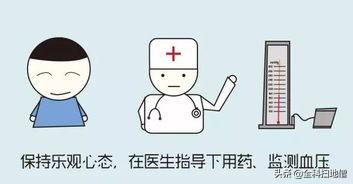
6. Large emotional fluctuations or irregular work and rest: such as emotional excitement, irritability, crankiness, staying up late, etc., will affect the blood pressure level, which is not conducive to blood pressure level control.
7, did not adhere to the medication: for patients with hypertension, due to the persistent rise in blood pressure, so need to take antihypertensive drugs every day, and leakage of service, do not take or less service drugs, will cause blood pressure rise.
We should have a correct understanding, pay attention to maintain good living habits, and take medication regularly to stabilize and control the condition, reduce complications and improve the quality of life.
This article has been written by GP Sweeps and we hope it has been helpful. Please correct any deficiencies, the article is for reference only and is not intended as medical advice.
Normally your blood pressure of 125/80 mmHg is within the normal range. There are several possible reasons why your blood pressure has been higher than usual for the past two days:
1. Psychological factors: tension, anxiety, depression, anxiety, excitement and other emotions can lead to increased blood pressure. For example, we often say that the "white coat phenomenon", usually normal blood pressure, a hospital on the rise, is due to psychological factors.
2. Dietary factors: A high-salt diet may cause sodium retention, leading to higher blood pressure. In addition, tonic products such as ginseng may also raise blood pressure higher than usual.
3. Lack of sleep: continuous insomnia or lack of sleep, staying up all night will make the sympathetic nerves excited, causing vasoconstriction, which leads to increased blood pressure.
4. Painful stimuli: Pain or other physical discomfort may also excite the sympathetic nerves and cause an increase in blood pressure.
5. Weather changes: Your blood pressure is usually lower in summer than in winter. This is because when the temperature is relatively high, blood vessels dilate and blood pressure drops. When the weather turns cold, blood vessels constrict and blood pressure rises.
6. Other factors: such as incorrect posture when measuring blood pressure, errors in different measuring instruments, etc. can also cause different values of blood pressure and usual measurements. In addition, the difference in blood pressure between the right and left hands during measurement can be about 20mmHg.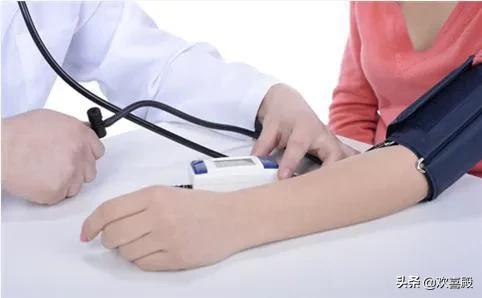
If the above factors are excluded for a period of time, and blood pressure is measured on 3 occasions on non-same days without the use of antihypertensive medication, and systolic blood pressure is ≥140 mmHg and/or diastolic blood pressure is ≥90 mmHg, then hypertension is diagnosed.
However, do not be particularly worried, as a blood pressure of 155/105 mmHg is considered mild (grade 1) hypertension. Patients with early or mild hypertension should first be treated with lifestyle changes, and if the results are still poor in 3 months, the addition of anti-hypertensive medication should be considered. If they have taken antihypertensive drugs before, they need to adjust the dosage of antihypertensive drugs or use a combination of drugs.

Healthy lifestyles include: reducing sodium intake and increasing potassium intake; controlling body weight; quitting smoking; not drinking too much alcohol; physical exercise; reducing mental stress and maintaining psychological balance, etc.
Hypertension prevention and treatment is very important. Long-term uncontrolled elevation of blood pressure significantly increases the risk of cardiovascular and cerebrovascular diseases. When taking antihypertensive drugs, it is recommended to start with a small dose and gradually increase the dose, and it is recommended to use long-acting preparations and individualize the use of drugs under the guidance of a doctor.

This question and answer are from the site users, does not represent the position of the site, such as infringement, please contact the administrator to delete.